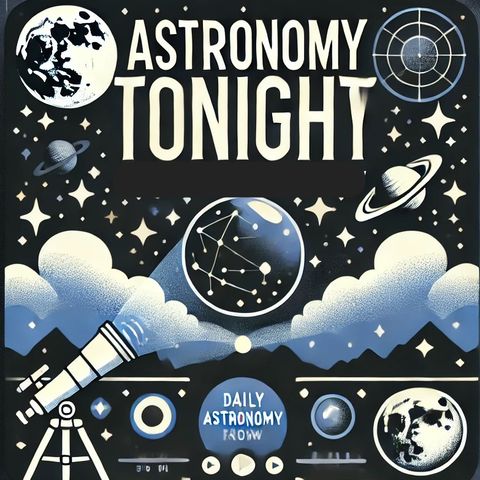Astronomy Tonight for - 11-07-2024

Download and listen anywhere
Download your favorite episodes and enjoy them, wherever you are! Sign up or log in now to access offline listening.
Astronomy Tonight for - 11-07-2024
This is an automatically generated transcript. Please note that complete accuracy is not guaranteed.
Description
Certainly! On November 7th in the world of astronomy, we celebrate a significant event that occurred in 1631: the first observed transit of Venus across the Sun. Picture this: It's...
show morePicture this: It's a chilly autumn morning in Paris, and a young astronomer named Pierre Gassendi is eagerly setting up his telescope. He's been anticipating this day for months, ever since his colleague Johannes Kepler predicted that Venus would pass directly between Earth and the Sun. This rare celestial dance had never been observed before, and Gassendi was determined to be the first to witness it.
As the Sun rose higher in the sky, Gassendi carefully projected its image onto a white screen (because looking directly at the Sun through a telescope is a big no-no, even for 17th-century astronomers). And there it was! A tiny black dot slowly making its way across the face of our star. Venus, the goddess of love, was strutting her stuff on the cosmic catwalk!
This observation was groundbreaking for several reasons:
1. It confirmed Kepler's mathematical model of the solar system, proving that his calculations were accurate.
2. It allowed astronomers to more precisely measure the size of Venus and its distance from Earth.
3. It paved the way for future transit observations, which would become crucial in determining the scale of the solar system.
Interestingly, Gassendi almost missed the show entirely. Kepler had predicted the transit would occur on December 6th, but his calculations were off by about a month. Luckily, Gassendi decided to start looking early, just in case. Talk about astronomical FOMO!
This event kicked off a Venus transit fever among astronomers. The next one wouldn't occur until 1639, and after that, they would come in pairs separated by over a century. The most recent Venus transit was in 2012, and the next one won't happen until 2117. So, Gassendi's observation on this day in 1631 truly was a once-in-a-lifetime event!
So there you have it – November 7th, the day Venus decided to photobomb the Sun and make astronomical history. Who knew celestial bodies could be such divas?
Information
| Author | QP-4 |
| Organization | William Corbin |
| Website | - |
| Tags |
Copyright 2024 - Spreaker Inc. an iHeartMedia Company

Comments